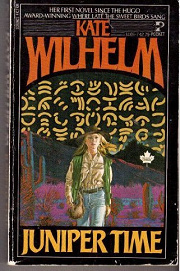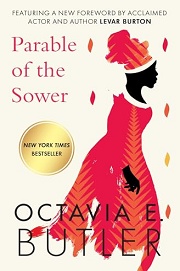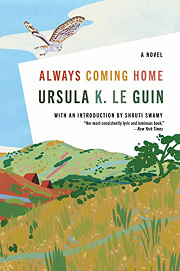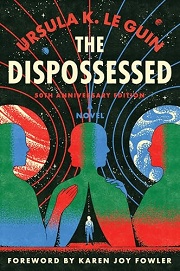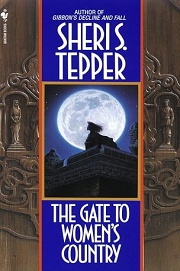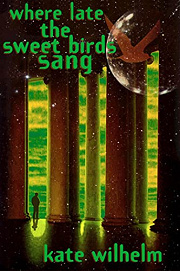Share your thoughts in a quick Shelf Talk!
Juniper Time by Kate Wilhelm
As society frays under mounting crises, a linguist grapples with the vanishing threads that bind people together—language, love, and the fragile hope for a future. Juniper Time is a quiet, human-focused science fiction tale that turns end-of-the-world anxieties into a poignant search for connection.
Have you read this book? Share what you liked (or didn’t), and we’ll use your answers to recommend your next favorite read!
Love Juniper Time but not sure what to read next?
These picks are popular with readers who enjoyed this book. Complete a quick Shelf Talk to get recommendations made just for you! Warning: possible spoilers for Juniper Time below.
In Juniper Time, did you enjoy ...
... the nuanced, character-driven vision of a collapsing world?
The Parable of the Sower by Octavia E. Butler
If you were drawn to the way Juniper Time follows Jean as she grapples with a fractured, drought-ridden America, you'll find Parable of the Sower deeply compelling. Butler's protagonist, Lauren Olamina, must navigate a similarly devastated landscape, facing environmental collapse and social upheaval with resourcefulness and empathy. Both novels intimately explore survival, change, and the human spirit in the midst of ecological crisis.
... richly textured worldbuilding of a future shaped by environment and culture?
Always Coming Home by Ursula K. Le Guin
If the immersive, speculative society of Juniper Time fascinated you, you'll revel in Always Coming Home. Le Guin crafts an intricate vision of the Kesh people in post-apocalyptic California, using stories, poems, and artifacts to bring their world to life. Like Wilhelm, Le Guin builds a future where environment and culture are inseparable, encouraging you to lose yourself in the details of a world rebuilt from the ashes.
... deep philosophical questions about society, identity, and survival?
The Dispossessed by Ursula K. Le Guin
If you appreciated how Juniper Time explores what it means to rebuild and find purpose in a fractured society, The Dispossessed will resonate with you. Shevek, a physicist from an anarchist moon, faces moral and existential dilemmas as he challenges both his society and himself. Like Wilhelm, Le Guin uses science fiction to ask profound questions about belonging, freedom, and hope.
... strong, complex female protagonists navigating a post-collapse society?
The Gate to Women's Country by Sheri S. Tepper
If Jean's resilience and complexity in Juniper Time stuck with you, you'll be captivated by Stavia in The Gate to Women's Country. Set in a future where women have rebuilt civilization along new lines, Tepper's novel examines gender, power, and tradition through the eyes of a protagonist who must make difficult, world-shaping choices. Both novels offer nuanced portrayals of women leading in the aftermath of civilization's fall.
... slow-burning, intimate portrayals of survival and connection after disaster?
Where Late the Sweet Birds Sang by Kate Wilhelm
If you were captivated by the gradual, atmospheric unfolding of Juniper Time—the way its characters adapt, grow, and try to maintain human connections in a changed world—you'll find Where Late the Sweet Birds Sang equally rewarding. Wilhelm explores the slow evolution of a community shaped by crisis, focusing on individuals as they search for meaning, love, and identity amid uncertainty.
Unlock your personalized book recommendations! Just take a quick Shelf Talk for Juniper Time by Kate Wilhelm. It’s only a few questions and takes less than a minute.
